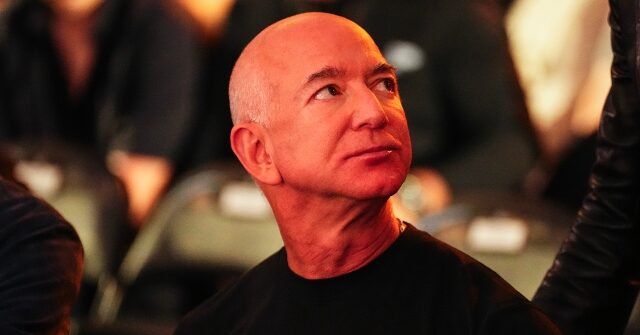Jeff Bezos, the founder of Amazon and owner of the Washington Post, publicly congratulated Donald Trump on his recent election victory, marking a striking political shift. Trump, who has now been elected for a second term, triumphed over Vice President Kamala Harris in a decisive election, securing significant electoral support. In a post on social media platform X, Bezos expressed admiration for Trump’s “extraordinary political comeback,” extending wishes for his success in leading and uniting the nation. This commendation from Bezos is noteworthy, especially given the previous political tensions between Trump and various media figures, including Bezos himself.
As the political landscape shifts, the Washington Post editorial board’s decision to abstain from endorsing any candidates in the 2024 election has drawn considerable attention. This marked the first instance in 36 years where the Post refrained from supporting a presidential candidate, a decision that allegedly came at Bezos’s behest. The newspaper’s non-endorsement has been interpreted as an acknowledgment of the shifting dynamics within the political sphere, particularly given that early voting trends seemed favorable for Trump. This non-endorsement may serve to highlight the changing attitudes within media organizations, especially in the context of significant political events.
The implications of this decision resonate beyond editorial choices; they may reflect broader strategic considerations for Bezos and the Washington Post amidst changing government contracts and pressures from political entities. While Bezos has significant business interests intertwined with the government, his decision to step back from political endorsements reinforces the complexities of maintaining a bipartisan image in an increasingly polarized climate. Meanwhile, Trump’s victory presents potential challenges and opportunities for various sectors of American society, including media, technology, and government relations.
In the wake of Trump’s victory, reports indicate he won approximately 292 electoral votes, with projections suggesting he may ultimately secure up to 312 once all states finalize their counts. This performance outstrips Trump’s 2016 results, where he garnered 304 electoral votes. The scale of this electoral success underscores a solid base of support for Trump, suggesting a resilient political backing and an ability to galvanize voters effectively despite tumultuous political climates. For Harris and Democrats, the electoral outcome signals a pressing need for introspection and potential realignment as they contend with the implications of Trump’s return to power.
The Washington Post’s editorial board’s choice not to endorse a candidate has significantly stirred reactions among political commentators, especially within the left-leaning factions. Many individuals have publicly expressed their discontent with the newspaper’s stance, viewing it as a disservice to the democratic process and the electorate’s needs. This reaction indicates a deep-seated concern regarding democratic values, media influence, and the electoral integrity amidst high-stakes political contests. Overall, the fallout from the election and the accompanying editorial decisions highlight the intricate interplay between media, politics, and public sentiment.
As the political environment continues to evolve, the responses from key players like Bezos and the Washington Post will undoubtedly shape the forthcoming discourse. With Trump poised to re-enter the White House, stakeholders across various sectors will be keenly observing changes in policy and political strategy that emanate from this administration. The impacts of Bezos’s recent actions and the media landscape’s response will likely reverberate throughout the 2024 election cycle and beyond, potentially rewriting the political narratives that dominate American society in the years to come.

